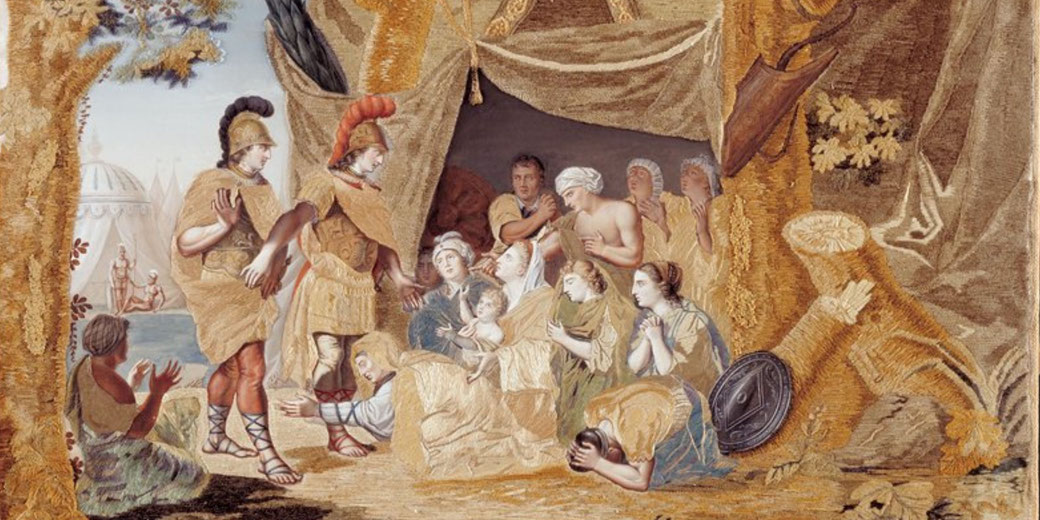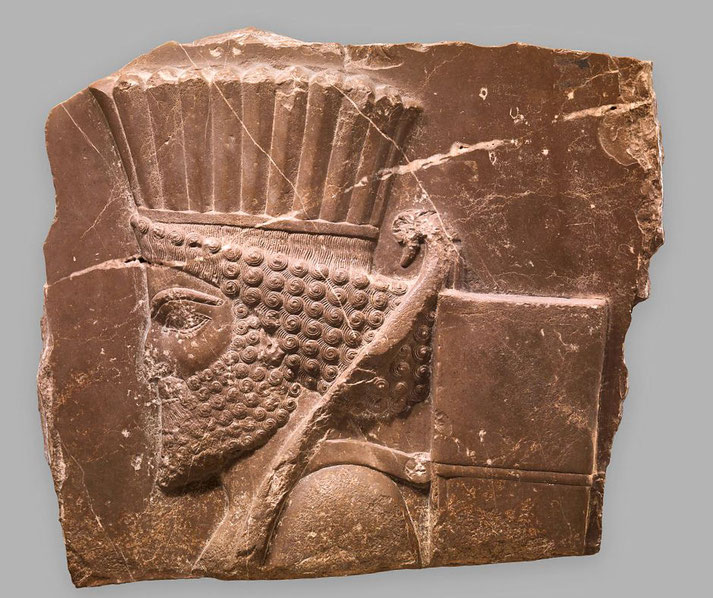The tragic fall of Darius III: Persia’s last king betrayed

Darius III was the final ruler of the Achaemenid Empire who lost his throne through a series of defeats and betrayals that showed how Persian power had collapsed.
He had been chased by Alexander the Great and had been abandoned by his generals. He died in shame rather than on the battlefield.
His downfall showed both his own failure to command and the self-interest of those who turned against him.
How Darius became the ‘king of kings’
Darius III, originally named Codomannus, rose unexpectedly to power in 336 BC after Artaxerxes III was assassinated and his successor Arses died shortly after, both likely poisoned under the direction of the powerful court eunuch Bagoas.
He came from a minor aristocratic background. Darius had previously served as satrap of Armenia and claimed distant family ties to the Achaemenid royal house, though he had no immediate right to the throne.
Bagoas, who hoped to control the empire through a compliant monarch, installed him as king, because he expected obedience.
Bagoas had already demonstrated his lethal influence over the Persian court, having arranged the deaths of several monarchs, including Artaxerxes III and Arses, and eliminating any nobles who challenged his authority.
When Darius forced Bagoas to drink the same poison he had used on others, Darius removed his manipulator and attempted to assert independent rule.
However, the empire he now led was already weakened by repeated internal unrest and administrative decay that allowed satrapal independence to grow.
Egypt had previously revolted under the rebel Khabash during the 4th century BC but had been reconquered under Artaxerxes III.
By Darius's reign, the region was still unstable but was no longer under open rebellion.
Many provinces had ceased responding reliably to royal commands, and treated the king more as a distant figurehead than as a commanding authority.

While Darius tried to stabilise the situation, external danger grew rapidly. The Macedonian king Philip II had already begun preparations to invade Persia, and following his assassination in the same year as Darius’s rise, his son Alexander took up the plan with renewed force and speed.
The invasion began in 334 BC, and the balance of power soon shifted in favour of the Greeks.
At a time when the Achaemenid kings needed strength and firm leadership, Darius appeared hesitant and reactive.
Though he claimed the title “King of Kings”, which had once signified mastery over extensive lands and many peoples, he struggled to maintain the authority his predecessors had wielded.
Satraps delayed in sending troops, governors acted independently, and the royal court lost confidence in the throne’s ability to repel the foreign threat.
A clash of kings: Darius III versus Alexander the Great
When Alexander crossed the Hellespont in 334 BC and defeated the Persian forces at the Granicus River, Darius did not lead the army in person.
He instead entrusted the defence of Asia Minor to local satraps. Among these commanders were Arsites of Hellespontine Phrygia, Mithridates, Darius’s own son-in-law, and Spithridates of Lydia, all of whom failed to stop the Macedonian advance.
Their failure allowed the Macedonian army to secure a base within the empire and encouraged Greek cities in western Anatolia to defect from Persian control.
Darius eventually gathered a large army and took the field himself, meeting Alexander in battle at Issus in 333 BC.
The terrain, confined between the mountains and the sea, removed the Persian advantage in numbers and favoured Alexander’s mobile phalanx and companion cavalry.
During the battle, Darius lost control of the situation, panicked when he saw his army retreat, and abandoned his chariot.
He fled the battlefield, leaving behind not only his gold and royal sceptre but also his wife, mother, and children, who were quickly captured by the Macedonians.
Humiliation followed quickly, as Darius’s decision to flee came to symbolise his failure as a ruler in the eyes of both allies and enemies.
His captured family was treated with respect by Alexander, who used their presence to strengthen his claim as a legitimate contender for Persian rule.
According to Plutarch, Darius’s mother Sisygambis mistakenly identified Hephaestion as Alexander and was still received with courtesy, which further enhanced Alexander’s reputation for honour.
Darius, however, was aware of his declining power and offered Alexander a peace settlement that included a large ransom and territorial concessions west of the Euphrates, but the Macedonian king, sensing the empire’s weakness, dismissed the offer.
In a final effort to halt Alexander’s advance, Darius gathered another massive army and selected the plains of Gaugamela for battle in 331 BC, ensuring the terrain would suit his scythed chariots and large infantry formations.
His troops greatly outnumbered the Macedonians, and his cavalry stretched across a wide front.
Some sources mention that he also deployed war elephants for the first time, though their actual presence and role in the battle remain uncertain.
However, Alexander’s well trained phalanx broke through the Persian lines at a critical point, while a successful cavalry charge disrupted Darius’s centre.
Once again, Darius abandoned the field in the face of defeat.
The second retreat destroyed what little confidence was left among his satraps and generals.
Royal power in Persia had traditionally depended on victory and bravery. By fleeing two major battles, Darius shattered the expectation that the king would defend the empire with unwavering strength, and he lost the loyalty of many who once claimed to serve him.
The final flight: Darius’s desperate bid for survival
After the rout at Gaugamela, Darius fled to Ecbatana in Media, hoping that the eastern provinces of the empire would stay loyal and help him raise a new army.
He had sent urgent messages across the empire, calling on the satraps of Bactria, Aria, and Parthia to bring their forces and renew the war effort.
The response he received, however, was a clear indication of the empire’s disintegration. While some satraps delayed their commitments, others began preparing to switch sides or seize power for themselves.
With Alexander moving swiftly to occupy the empire’s key administrative centres, including Babylon, Susa, and eventually Persepolis, Darius had gathered what little support was left and had begun an urgent march east.
His goal was to reach Bactria, where the satrap Bessus controlled a strong force and claimed to offer protection.
The journey showed how far his power had collapsed. Royal messages went unanswered, supplies dwindled, and the few guards who remained began to question the wisdom of following a king who had failed to protect his throne.
As Alexander pursued him across Persia, Darius became a fugitive rather than a monarch.
The king who once ruled the largest empire in the world now relied on the loyalty of a handful of commanders, including Barsaentes and Nabarzanes, both of whom would later betray him.
For those generals, preserving their own power meant removing a king who had become a symbol of failure.
Why did Bessus betray Darius III?
Bessus, who governed Bactria and claimed distant ties to the Achaemenid royal house, held real power in the east and maintained a seasoned army.
He initially appeared loyal, he joined Darius during his retreat and offered military assistance.
However, he soon realised that Darius’s authority could no longer rally the broken empire and saw an opportunity to place himself on the throne.
In July 330 BC, while Darius remained under escort in the region of Parthia, Bessus conspired with several senior officers and arrested him.
They declared Bessus the new king, assigning him the throne name Artaxerxes, though the later designation "Artaxerxes V" is a modern convention.
They claimed that he would resist Alexander more effectively. Their plan depended on support from the eastern satrapies and the hope that Alexander would struggle to maintain control over Persia’s remote provinces.
As Alexander’s forces closed in on the column as it fled, the conspirators panicked.
Fearing that Alexander might free Darius and punish them as traitors, they stabbed the deposed king and left him to die in a covered wagon.
When Macedonian troops found him near the Caspian Gates in Parthia, he had already bled to death from his wounds.
According to later sources such as Arrian and Curtius Rufus, Darius used his final words to thank the Macedonians for their compassion and asked them to tell Alexander that he had been wronged by his own commanders, not by his enemy.

How Bessus was punished
Alexander reacted to Darius’s death with a mixture of anger and strategic calculation.
He ordered a state funeral and had the body transported with honour to Persepolis, where it was buried among the royal tombs at Naqsh-e Rustam beside other Achamenid kings.
By doing so, he claimed the right to succeed Darius and present himself as the legitimate ruler of Persia.
Determined to avenge the murder and eliminate any rival claimant, Alexander pursued Bessus across the eastern satrapies.
Bessus fled through Bactria and into Sogdiana, but his support quickly eroded as local leaders refused to back a regicide whose claim to kingship had no official confirmation from the Persian nobility or priesthood.
Eventually, the satraps Spitamenes and Dataphernes captured Bessus and handed him over to Alexander’s forces.
Alexander ordered him humiliated in public, had his ears and nose cut off in accordance with Persian punishment for traitors, and brought him to Ecbatana.
There, a Persian court judged him guilty of treason and regicide. He was executed by traditional methods, which ancient sources disagree on, describing either crucifixion or quartering by tying his limbs to bent trees and releasing them.
With Bessus dead and no other legitimate Achaemenid claimant left, Alexander secured the full title of King of Asia.
Although he came from Macedon, he now presented himself as the successor to Darius, he adopted Persian customs such as court dress and ritual proskynesis and he married Roxana, a noblewoman from Bactria, to consolidate his rule.
The death of Darius III, killed by his own men after two failed campaigns, brought an end to over two centuries of Achaemenid rule and cleared the way for a new imperial order under Macedonian control.
What do you need help with?
Download ready-to-use digital learning resources
Copyright © History Skills 2014-2025.
Contact via email
With the exception of links to external sites, some historical sources and extracts from specific publications, all content on this website is copyrighted by History Skills. This content may not be copied, republished or redistributed without written permission from the website creator. Please use the Contact page to obtain relevant permission.





